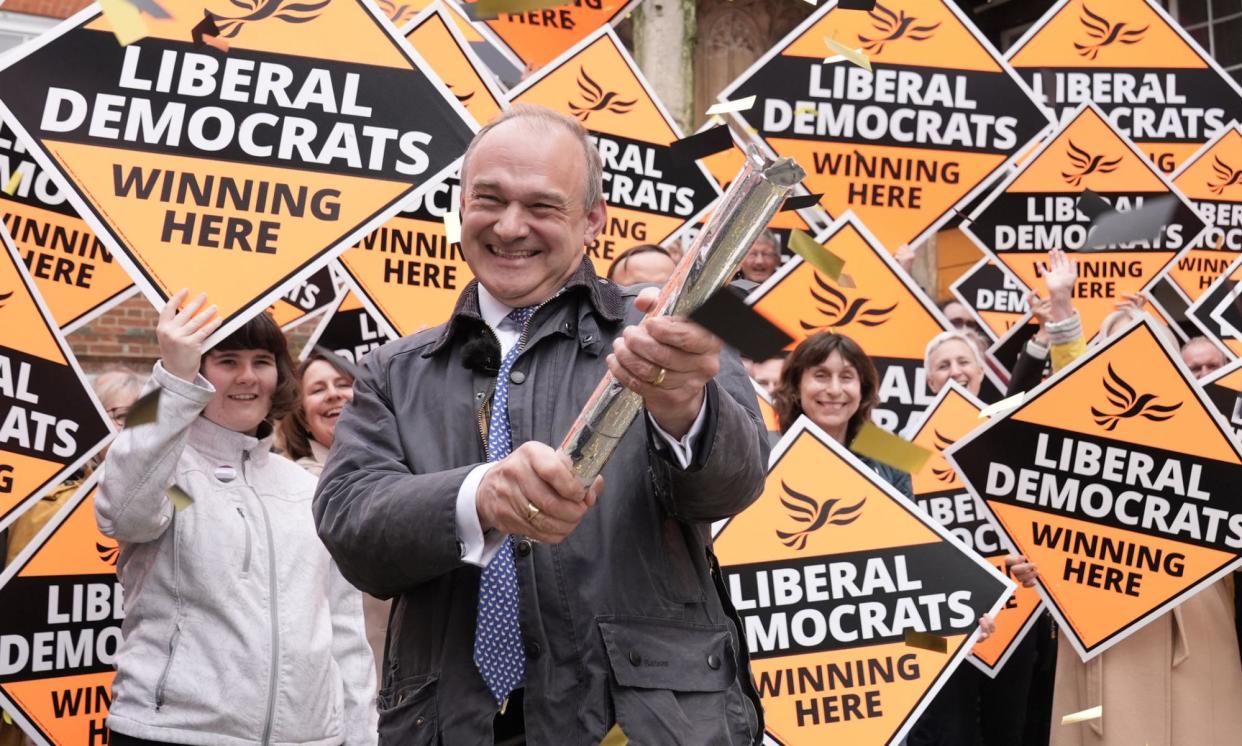Lib Dems gain most council seats in last five years, party’s data shows

The Lib Dems have added more council seats than any other party over the last parliament, gaining more than 750 in the last five years, largely in the south-west and south of England.
As Ed Davey’s party won more seats than the Conservatives in the local elections last week, the Lib Dems said Tories would be “looking over their shoulder terrified” as the general election approached.
Data analysis by the party shows that the Lib Dems have gained 768 seats, Labour 545 and the Greens 480, while the Conservatives have lost 1,783.
The scale of the Conservative losses, with many councils falling to no overall control or Labour and Lib Dem coalitions since 2019, is likely to add to nerves among Tory MPs worried about keeping their seats at the general election.
The Lib Dems have taken control of councils in Devon, Dorset, Hampshire, Hertfordshire, Somerset and Surrey.
The party could be responsible for toppling some of the biggest Conservative names at the general election, such as the chancellor, Jeremy Hunt, and the housing secretary, Michael Gove, in Surrey, the justice secretary, Alex Chalk, in Cheltenham and Jacob Rees-Mogg in Somerset.
The Lib Dems have not improved their polling much nationally in recent months, remaining on about 10%, while the Reform party is on about 12%. Its national share of the vote in the local elections was about 17%, three percentage points down on 2023, but it appears to be building up support in pockets rather than across the country.
The party’s strong gains in local elections suggests its strategy of focusing on building up votes in key strongholds could help deliver seats at the election.
Visiting Dorset, where the Lib Dems took control of the council by taking 13 seats off the Tories, Davey said Conservative MPs in the region would be worried.
“This victory in Dorset is an historic and stunning result for the Liberal Democrats,” he said. “People here in Dorset and right across the country are fed up with this chaotic and out-of-touch Conservative government and they’re voting for change with the Liberal Democrats.
“From tackling issues with the NHS and the local environment to supporting people with the cost of living crisis, I know the new Liberal Democrat team on Dorset council will do everything they can to give people here a fair deal.
“After our victory in Somerset two years ago and our stunning successes in Devon last year, this win in Dorset confirms that the Liberal Democrats are back in the West Country and will be the main challengers to Conservative MPs here whenever the general election is called.”
The Green party also performed well at the local elections, adding about 74 seats, and becoming the largest party on Hastings borough council. It also became the largest party in Bristol, just short of an overall majority on the city council.
It also won its first seats on councils including Newcastle upon Tyne, Sefton in Merseyside, Redditch in Worcestershire and South Norfolk.
The party will also be targeting seats such as North Herefordshire and Waveney Valley in East Anglia at the general election.

 Yahoo News
Yahoo News 
